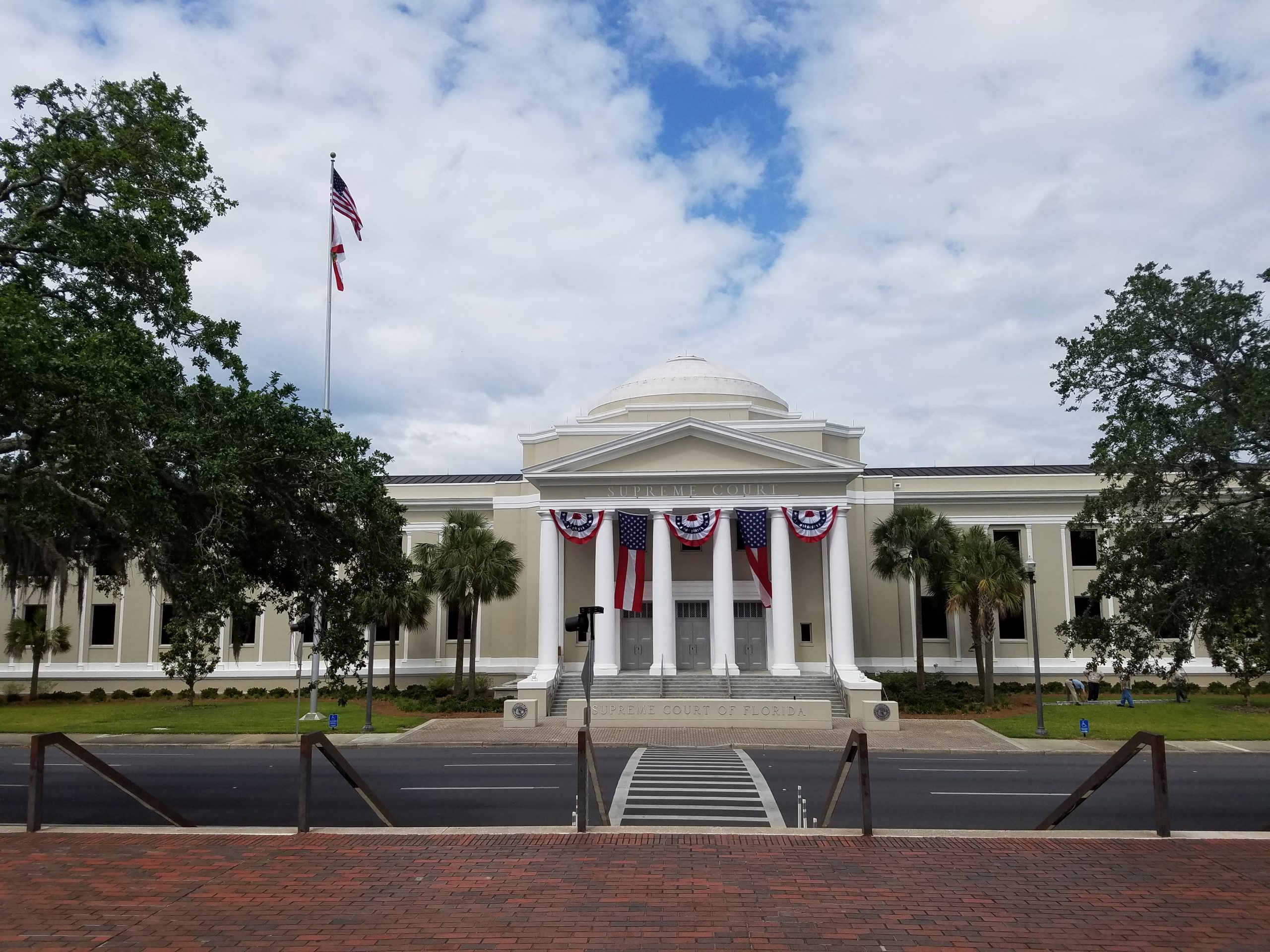The Florida Supreme Court issued two rulings related to a state constitutional right to abortion on April 1.
First, the court ruled that Amendment 2 (1980), which provided a state constitutional right to privacy, did not include the right to abortion, which is a change from a previous ruling in 1989.
Second, the court ruled that a citizen initiative, Amendment 4, to provide a constitutional right to abortion, can appear on the general election ballot.
In Planned Parenthood of Southwest and Central Florida v. State of Florida, Justice Jamie Rutland Grosshans wrote the majority's opinion. She said, "We recede from our prior decisions in which—relying on reasoning the U.S. Supreme Court has rejected—we held that the Privacy Clause guaranteed the right to receive an abortion through the end of the second trimester." The ruling allowed the state's 15-week abortion ban, passed in 2022, to take effect. In 2023, the legislature passed another bill, known as the Heartbeat Protection Act, to ban abortion at six weeks, which was contingent on the state supreme court's action. The six-week abortion ban will take effect on May 1.
The citizen-initiated amendment to provide a state constitutional right to abortion will appear on the ballot as Amendment 4. The initiative would add language to the Florida Constitution saying that the state cannot prohibit, penalize, delay, or restrict abortion before "viability or when necessary to protect the patient’s health, as determined by the patient’s healthcare provider."
The campaign behind the initiative, Floridians Protecting Freedom, submitted 891,523 valid signatures to appear on the ballot. The final step was approval from the Florida Supreme Court. Attorney General Ashley Moody (R) challenged the initiative as unconstitutional and having misleading ballot language. Florida is the only state requiring a court to review language during or after signature collection for ballot initiatives.
In 2022, six ballot measures addressed abortion—the most on record for a single year. In California, Michigan, and Vermont, voters approved three ballot measures establishing state constitutional rights to abortion. In 2023, voters in Ohio approved Issue 1, which provided a state constitutional right to "make and carry out one’s own reproductive decisions." Florida will be the fourth state to vote on establishing a state constitutional right to abortion. Unlike the other four states, Florida requires a 60% vote to ratify constitutional amendments. In Michigan and Ohio, the amendments received 56.7% and 56.8% of the vote, respectively.
From 1970 to November 2023, 54 abortion-related ballot measures were on the ballot, 43 (80%) of which were supported by organizations that described themselves as pro-life. Voters approved 11 (26%) and rejected 32 (74%) of these 43 ballot measures. The other 11 abortion-related ballot measures were supported by organizations that described themselves as pro-choice or pro-reproductive rights. Voters approved eight (73%) and rejected three (27%).
Julie Chavez-Rodriguez, campaign manager for President Joe Biden's reelection campaign, said, "As we’ve seen in election after election, protecting abortion rights is mobilizing a diverse and growing segment of voters to help buoy Democrats up and down the ballot. With an abortion amendment officially on the ballot this November in Florida, President Biden and Vice President Harris and their commitment to fighting back against Donald Trump and Rick Scott’s attacks on reproductive freedom will help mobilize and expand the electorate in the state, given the overwhelming majority of Floridians support abortion rights."
Miami Commissioner Kevin Cabrera, the state director for Donald Trump’s 2020 campaign, said, “There is no empirical data suggesting abortion will be a driving force considering that Joe Biden’s failed agenda has continued harming everyday Floridians."
The Florida Supreme Court also ruled that Amendment 3, an initiative to legalize recreational marijuana, can appear on the statewide ballot. In November, voters will decide on six constitutional changes—two citizen-initiated amendments and four from the state legislature. The legislative amendments address partisanship in school board elections, public campaign financing, the right to hunt and fish, and the homestead property tax exemption.
Additional reading:



